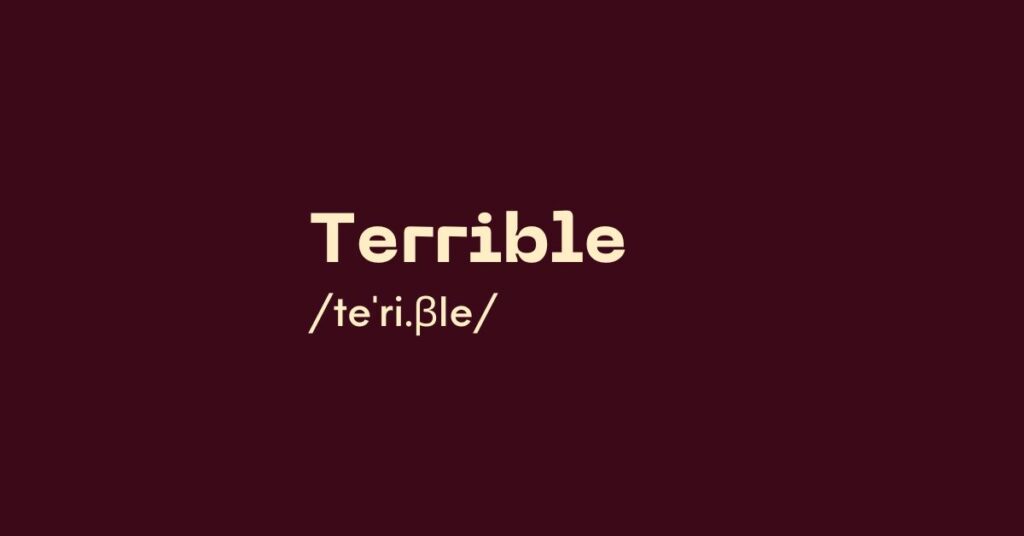Today’s Spanish word of the day is “terrible”. Can you guess what it means? That’s right, it means “terrible”! No surprises there.
It’s important to remember that Spanish follows quite different pronunciation rules to English, so the Spanish word “terrible” is pronounced quite differently to its English equivalent. The double r is trilled, and the final e is pronounced.
Both English and Spanish “terrible” come from the Latin verb terrere, meaning “to fill with fear”.
Some related words in Spanish include “aterrorizar” meaning “to terrorize”, and “terror” meaning “terror” (another perfect cognate with English).
Example sentences
Tuve un día terrible en el trabajo.
I had a terrible day at work.
El tráfico en la ciudad es terrible a esta hora.
The traffic in the city is terrible at this time.
El terremoto de Valdivia en Chile, en 1960, fue terrible, el más fuerte registrado en la historia.
The 1960 Valdivia earthquake in Chile was terrible, the strongest ever recorded in history.
La contaminación del río Bogotá es terrible y afecta a miles de personas en Colombia.
The pollution of the Bogotá River is terrible and affects thousands of people in Colombia.
El ruido de la construcción es terrible por las mañanas.
The construction noise is terrible in the mornings.

